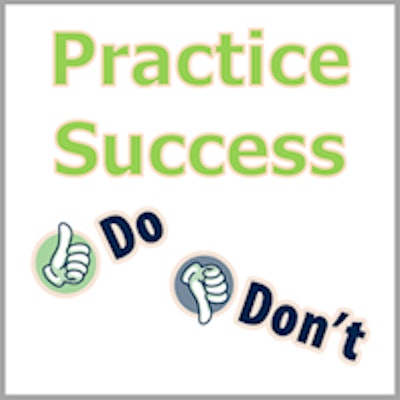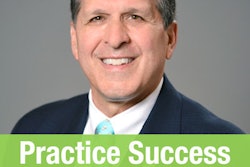
Many dentists have learned how important it is to say the right things to team members and patients. Whether motivating staff to reach their performance targets or influencing patients to accept treatment, doctors can profoundly affect the growth of the practice. Yet the flip side of effective interpersonal communication -- the art of listening -- hasn't received the same level of attention.
Skilled listeners have a distinct advantage. By learning what others are thinking, including their hopes and fears, attitudes, misconceptions, and more, doctors can serve patients better and lead their teams more skillfully.

Encourage dialogue. Understand that your role as dentist and practice leader can make those around you hesitant about speaking their minds. Good listening, therefore, means more than just paying attention to what's said -- you need to actively encourage team members and patients to talk openly with you.

Don't let what you hear go in one ear and out the other. The only thing worse than not listening is seeming to listen and then ignoring what you hear. If you don't show genuine interest and take action based on what you hear, people will conclude that you don't really care what they think.
Roger P. Levin, DDS, is the founder and CEO of Levin Group, the leading dental practice consulting firm in North America.
The comments and observations expressed herein do not necessarily reflect the opinions of DrBicuspid.com, nor should they be construed as an endorsement or admonishment of any particular idea, vendor, or organization.



















